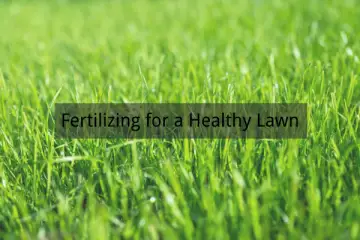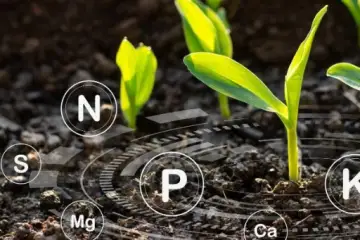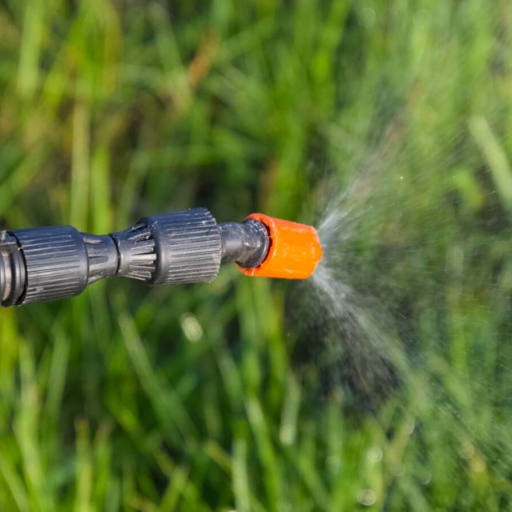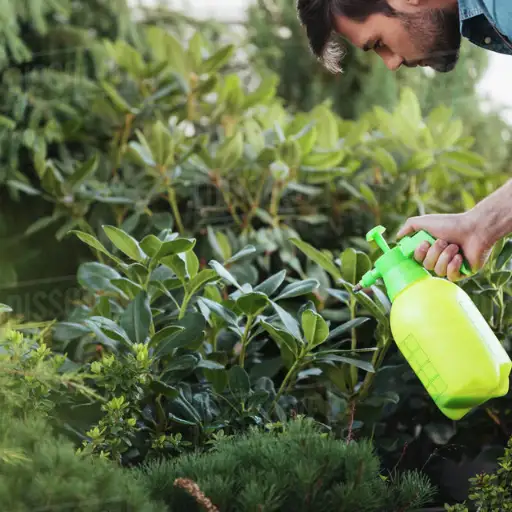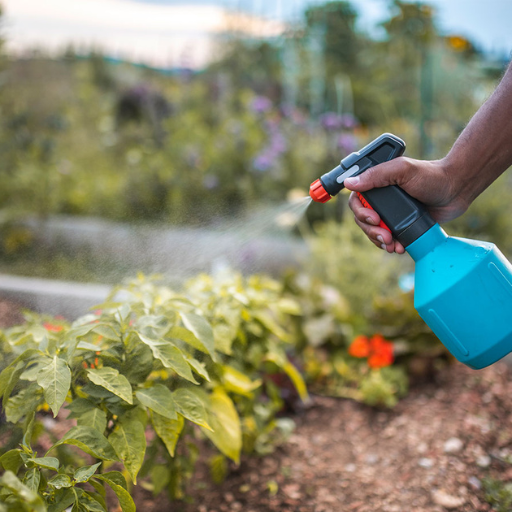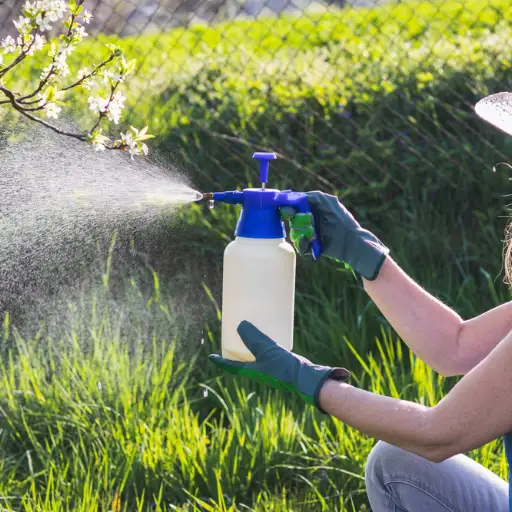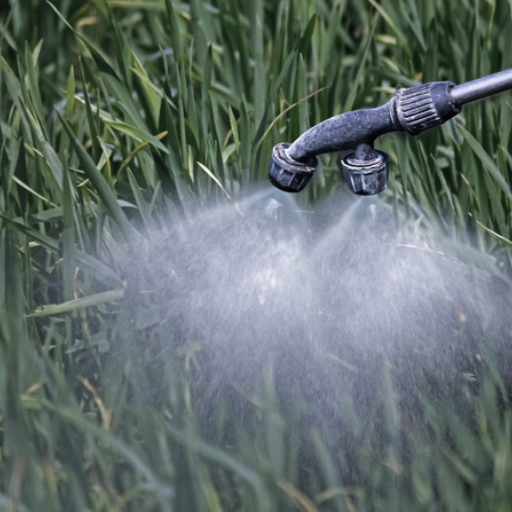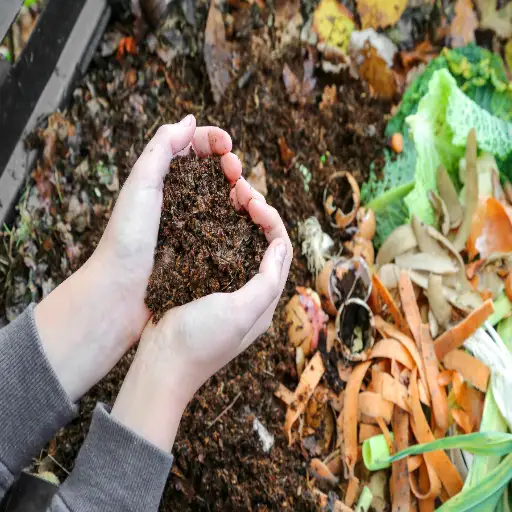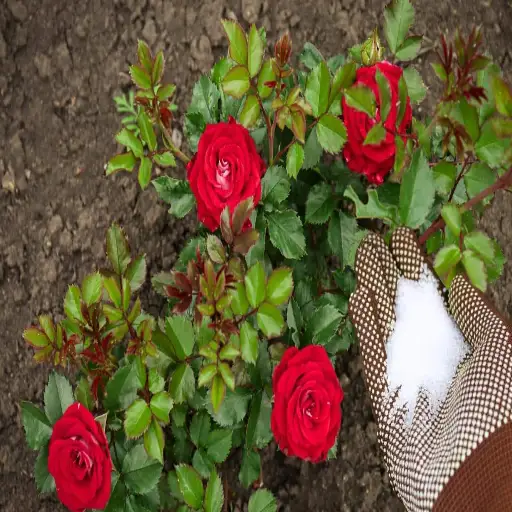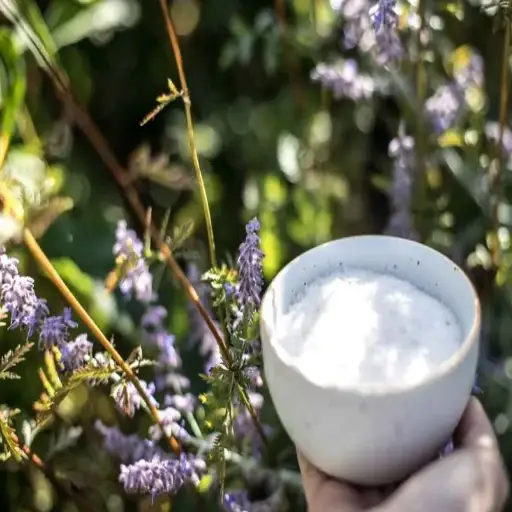Maintaining a pristine lawn and a flourishing garden can often seem like a daunting task, especially when you want to keep it eco-friendly. Many traditional fertilizers contain harmful chemicals that can damage the environment, but there is a more sustainable option available. This blog delves into the benefits of using organic spray fertilizers as a green alternative for nurturing your lawn and garden. We’ll explore how these natural solutions work, what makes them beneficial for both plants and the environment, and provide tips for incorporating them into your gardening routine. Whether you’re a novice gardener or a seasoned horticulturist, this guide aims to equip you with the knowledge to foster a thriving, eco-conscious outdoor space.
Introduction to Organic Liquid Fertilizer and How It Works
Digesting Organic Fertilizer Basics
Natural sources, such as plant matter, animal manure and minerals, are what organic fertilizers are derived from. They do not have any artificial additives or harsh chemicals like synthetic fertilizers. Instead of that, they depend on the natural processes to decompose and release nutrients into the plants. By doing this, there is a slow release of nutrients over time which helps in preventing rapid growth while reducing the risk of nutrient runoff that can be hazardous to the surroundings. These also contribute in improving soil structure and enhancing microbial activity for a better and more balanced ecosystem.
Benefits of Using Organic Liquid Fertilizer
There are several advantages associated with organic liquid fertilizers in both your garden as well as the environment at large. First, they enhance soil structure by increasing organic matter content needed for root development hence healthier plant life. This ensures that you get much stronger and more robust plants eventually. Secondly, their nutrient contents are released slowly thus minimizing chances of over-fertilizing and nutrient runoff cases. This same process supports an array of soil microorganisms thereby encouraging a higher level microbial activity which decomposes organic materials even further enriching the soil.
Also organic liquid fertilizers are considered eco-friendly as well. Ordinarily; these chemicals do not contain any harmful substances or synthetic additives that can enter watercourses or kill helpful insects and animals too . In support of bio-diversity gardening practice that aids in mitigating against an ecological footprint on your garden by adopting organic approaches to gardening practice . Lastly households with children and pets find comfort knowing that their gardens have been treated with organic liquids meaning it would pose no threat if kids or pets come into contact with them.
Common Ingredients in Organic Liquid Fertilizers
Various natural components are used to manufacture organic liquid fertilizers which contribute to healthy soil ecosystems while supplying essential nutrients required by crops types. The ingredients include:
- Fish Emulsion: Fish emulsion is nitrogen, phosphorus, and potassium rich made from pulverizing fish parts. It also contains amino acids and trace elements important for plant growth as well as soil microbial activity.
- Seaweed Extract: This extract is prepared from kelp or other sea weed plants and it contains micronutrients hormones and enzymes that promote root development leading to drought resistance. Similarly, it encourages microbial diversity in soils that enhances overall soil health.
- Compost Tea: Compost tea is prepared by soaking compost in water and it provides an infusion of beneficial bacteria as well as nutrients. As such it contributes to fertility of the soil, improves plant health, renders plants resistant towards pests & diseases.
These are some among others which make organic liquid fertilizers a valuable choice for gardeners who wish to cultivate vibrant sustainable garden environments.
Methods for Effective Application of Liquid Organic Fertilizer
Applying Liquid Fertilizers to Your Lawn
- Select the Right Time: Apply liquid fertilizers either in the morning or evening. This prevents loss by evaporation and optimizes absorption.
- Dilute the Fertilizer: Dilute your liquid fertilizer by following instructions given by its manufacturer using water. Nutrients are thus strongly concentrated when applied on your lawn surface.
- Use a Sprayer: In this case, you can use either garden hose-end sprayer or pump sprayer so as to apply the diluted fertilizer uniformly across your lawn. This will ultimately lead to uniform coverage of your lawn and ensure that all parts get enough nutrients.
- Apply Evenly: Walk slowly and methodically spraying it everywhere without soaking one area more than another. Applying too much leads to run-off and an imbalance of nutrients.
- Water Your Lawn: Lightly water your lawn after applying fertilizer to help nutrients penetrate deeply into the soil. It is essential for rapid nutrient uptake through grass roots.
- Repeat as Required: While granular types might be used once every 2-4 weeks, liquid fertilizers may be employed more often; depending on the specific product instructions concerning application intervals.
Hints for Foliar Spray Applications
- Choose The Right Conditions: Do foliar sprays during early morning or late evening so that they are not done in direct sunlight hence evaporating faster than expected due to high temperatures.
- Prepare Solution Correctly: Always adhere to dilution rates provided by manufacturer since over concentration can burn foliage while under concentration may fail provide enough nutrients.
- Use Fine Mist: Use spray bottle with fine mist setting such that leaves get evenly covered with it. Droplets should be small for better nutrition absorption through leaf surfaces.
- Target Undersides Of Leaves : Spray solution onto underside of leaves where stomata are more numerous as this is where plants absorb most nutrients from .
- Avoid Rainy Weather: If rain is expected do not make foliar sprays because these could wash away the nutrients before they are absorbed.
- Monitor for Reactions: Observe the plants after application for any signs of over feeding or leaf burn and adjust future applications accordingly.
By considering these tips, foliar spray applications can be effectively carried out so as to supply vital nutrients directly to plant leaves thereby enhancing healthier and more vibrant gardens.
How Often And When To Fertilize
The frequency and timing of fertilizer application largely depend on the type of plants being grown as well as the specific fertilizers used. Most annual plants benefit from a fertilization schedule every 4-6 weeks during the growing season, while perennials can be fertilized twice a year—in early spring and again in mid-summer. Vegetables and flowering plants may require more frequent feeding, typically every 2-4 weeks, to support continual growth and productivity. It is important to adhere to fertilizer manufacturers’ recommendations regarding specific application intervals. Furthermore, applying fertilizer during early morning hours or late evening prevents nutrient loss from evaporation, enhancing nutrient absorption by plants. When seasons change and your plant grows adjustments should be made on your plan to ensure that your garden is healthy with an optimal nutrition level.
Organic Liquid Fertilizers Improve Soil Health
The Function of Liquid Fertilizers in Soil Improvement
Organic liquid fertilizers play a major part in boosting soil health through improved soil structure, increased microbial activity and more nutrients. These types of manures that are made from organic sources like compost, fish emulsion and seaweed extracts, are very important to the soils as they add the necessary nutrients that plants require to grow well. Improved microbial action helps decompose organic substances releasing nutrients for plant absorption. Organic liquid fertilizers also enhances soil’s ability to retain moisture and support root development leading to healthy crops that can resist diseases. Such fertilizers therefore support sustainable gardening practices and long term soil fertility.
Understanding Humic Acids and Fulvic Acids
Humic acids and fulvic acids form significant parts of soil organic matter which are essential for promoting healthy soils as well as enhancing crop nutrition. These organic acids occur due to decomposition of plant and animal residues found in humus, which is an integral part of any fertile soil.
- Humic Acids: Humic acids are larger molecules that improve soil structure by increasing its ability to hold water and nutrients. They increase porosity levels hence better root penetration into the soils by creating tunnels through which roots can pass through them easily allowing oxygenation of roots. Furthermore, humic acids make nutrients accessible by forming complexes with soil minerals thereby improving their bioavailability.
- Fulvic Acids: In contrast to humic acids, fulvic acids have a lower molecular weight and higher reactivity. Because they are highly soluble in water, they transport plant nutrients through cell membranes with ease. They chelate essential minerals needed by plants; this allows these particles an easy pathway into the cells making it very efficient for nutrient uptake in plants’ roots Soils can be detoxified when fulvic acid is added because it binds heavy metals among other pollutants.
Taken together, humic acid and fulvic acid create balanced fertility within the soil ecosystem thus supporting healthy crop growth as well as sustainable farming methods.
How to Combine Compost and Liquid Fertilizers
Incorporating compost and liquid fertilizers in your gardening routine is an effective way of improving soil health and promoting healthy plant growth. Start by spreading a layer of compost on top of your garden beds, approximately 2-3 inches thick, and then incorporate it into the topsoil so that the soil becomes full of organic substances thereby making its texture better as well as rendering it more fertile.
Liquid manure should be diluted following the manufacturer’s directions before use. This can be done through a watering or spray can for uniform distribution. The liquid fertilizer should be poured directly onto the ground near the base of each plant so that nutrients are delivered where they are most needed.
By combining both composts and liquid fertilizers, one can take advantage of slow-release properties linked with compost application alongside immediate nutrient boost obtainable from applications such as liquid fertilizers. Consistency in using them will sustain high productivity of crops since these are done after every growth period for crops but during their vegetative phase which ensures that plants do not lack vital elements at this important stage.
Special organic fertilizers for different plants
Fertilizers for Fruit and Vegetable Gardens
It is necessary to select fertilizers which meet the specific nutritional demands of these plants when it comes to fertilizing fruit and vegetable gardens.
- Espoma Garden-Tone: This organic fertilizer is specially formulated for fruit and vegetable gardens. It has a mix of vital minerals such as nitrogen, phosphorus, potassium and beneficial organisms that enhance healthy root growth as well as increased yields.
- Miracle-Gro Performance Organics: This organic fertilizer increases plant growth and enhances productivity. Its components are made up of natural substances like feather meal, bone meal or earthworm castings which keep providing nutrients throughout the growing season.
- Jobe’s Organics Vegetable & Tomato Fertilizer: The product comprises an array of organic contents ideal for supporting vegetables’ and tomatoes’ robust growth. Also, Jobe’s Biozome, which is combination of helpful bacteria plus mycorrhizal fungi, archaea that improve soil structure and hardiness of crops are included here.
These manures guarantee that your fruit plus vegetable gardens get enough nutrients to grow strong, produce abundantly and remain healthy in general.
Organic Liquid Lawn Fertilizer Options
- LOYAL 16-4-8 Balanced NPK: This liquid fertilizer is specifically designed for lawns with a perfectly balanced ratio (16-4-8) of nitrogen, phosphorus, potassium. It works on all grass species helping them turn green quickly into vigorous ones with healthy roots giving it over-all vitality. In addition to this seaweed extract and fish hydrolysate improve soil fertility/resilience because they contain various types of hormones called auxin/cytokinin/gibberellins etc.
- Medina HastaGro Lawn: For those people interested in environmentally safe lawn care methods, Medina presents this organic-based liquid fertilizer option for use on turfgrass areas. The mixture contains crucial elements such as NPKs while also including humic acids and molasses, which assist in growth stimulation and deepening of grass color as well as root strengthening.
- Nature’s Lawn & Garden – Bio-Enhanced 16-4-8: For a wider lawn application this organic liquid fertilizer combines balanced NPK ratio, soil-friendly microorganisms and bio-enhancers. It ensures rapid growth of strong turf; the enhanced assimilation of nutrients through its leaves also protects it from drought related with heat stress.
These organic liquid lawn fertilizers have been created to help give your lush green yard all the nutrients it needs for healthy soils and environmental sustainability.
All-Purpose Plant Food for Versatility
All-purpose plant foods are an effective and convenient way to meet the diverse nutritional requirements of a garden. These versatile fertilizers are formulated to support the growth and health of various plants, from flowers and vegetables to shrubs and trees. Here are three highly recommended all-purpose plant foods, as highlighted by top gardening websites:
- LOYAL Water Soluble All Purpose Plant Food: Known for its dependable performance, this product is highly rated for its balanced 24-8-16 NPK formula. It is designed to feed plants instantly, encouraging lush foliage, vibrant blooms, and bountiful harvests. Also intended for indoor/outdoor use on plants where very soluble nitrogen feeds are required.
- Jobe’s Organics All Purpose Fertilizer: Jobe’s Organics makes this 4-4-4 NPK ratio all-purposed fertilizer that is suitable for people who want to maintain organic standards in their gardens. This particular product employs several beneficial fungi/microbes contained in Jobe’s Biozome that improve soils’ ability to release nutrients while resisting diseases etc., helping plants uptake more minerals properly; thus it can be used on various types of vegetation over time without harming them due to e.g., nitrate leaching or salt accumulation caused by excess amounts used at once.
- Espoma’s all-purpose plant food:Excellent alternative that is well-rated for its flexibility. It is a granular fertilizer that has a balanced 12-10-10 NPK ratio which gives important elements needed to facilitate healthy plant growth. In addition, this granular fertilizer contains Bio-tone microbes which improve the soil structure and increase the natural resistance of plants.
These are some of the best general purpose plant foods that enable users to easily and efficiently feed different types of plants with nutrients necessary for their healthy development and bright gardens.
Safety precautions when using liquid fertilizers
Safe Handling and Storage of Liquid Fertilizers
To ensure safety and effectiveness, it is very important to follow these guidelines when handling and storing liquid fertilizers. In the first instance, always go through the label on the container of fertilizer to get specific instructions as well warnings given. To avoid any contacts between eyes or skin with them use appropriate protective gears; for example gloves and goggles. Keep liquid fertilizers in a cool dry place away from sunlight where children and pets cannot access them. After every application, make sure that you close the container tightly so as to prevent accident occurring due to spillage or leakages. Also, keep fertilizers away from areas with potable water so that they do not contaminate it. These precautions can be followed in order to safely and effectively apply liquid fertilizers in your garden.
Environmentally Friendly Fertilizer Practices
For environmentally friendly fertilizer practices focus should be on organic and slow release fertilizers which reduce nutrient runoff potential pollution when applied at recommended rates. Composts and manures also are natural sources of plant nutrients recycling material which would have gone for waste thus increasing soil fertility level naturally. The other initiative is planting cover crops that foster soil health thus minimizing use of chemical nitrogenous fertilisers in cropping systems. Moreover, observe recommended application rates plus timeframes whenever applying any kind of fertilizer so as not to over-fertilize hence cause harm to plants or environment there too much nutrient has been released into the soil consequently affecting both plants and other living organisms negatively. Hence by doing this one can help create a healthier ecosystem while maintaining a flourishing garden.
Potential Hazards and How to Avoid Them
Several potential hazards may expose humans as well as their surroundings towards risks when using fertilizers. For me I prefer complying with safety measures aimed at mitigating these risks properly. Chemical poisoning is ranked among the leading issues where by skin irritation, breathing problems and eye damages are caused. So, as a preventative measure, I always have to wear protective clothing such as gloves masks and goggles when handling fertilisers. In addition children and pets may accidentally ingest them. Therefore, I put my fertilizers in a secure place that keeps them out of reach of those people. Evidently, excessive use of fertilizers enhances water runoffs with high concentrations of nutrient thus polluting aquatic environments. To avoid this situation at all times I keep a close eye on the recommended application rates never applying fertilizer before it rains heavily. By doing this, my own health is safeguarded as well as the surroundings while my garden remains productive.
Frequently Asked Questions (FAQs)
Q: Why use fish fertilizer in organic gardening?
A: Fish fertilizers are rich in nitrogen and other important nutrients which promote healthy plant growth and green foliage. This is a great organic option and safe for children and pets, resulting in a healthier environment for your garden.
Q: Can liquid fish fertilizers be used for both indoor and outdoor plants?
A: Yes, liquid fish fertilizers are versatile enough to be incorporated into the care of both indoor and outdoor plants. They have a good balance of ingredients that support general health of potted plants, gardens and lawns.
Q: What nutrients do my plants need for healthy growth?
A: Plants require an optimal combination of macronutrients (nitrogen, phosphorous and potassium) together with micronutrients (iron, manganese, zinc etc.) so as to grow well. Organic spray fertilizers contain these essential elements ensuring your plants get what they need to thrive.
Q: How does fish fertilizer benefit fruit trees?
A: Essential nutrients from fish fertilizers will improve fruit trees through the provision of strong roots and foliage among others. Consequently, this supports their overall health that leads to an improved output in terms of yield and quality.
Q: Is it safe to use organic fertilizers around kids and pets?
A: Certainly liquid seaweed or fish fertilizers—organic in nature—are harmless within reach of kids or domestic animals. That makes them family-friendly choices since they don’t involve any artificial chemicals which might harm anyone.
Q: How does foliar feeding work with liquid fertilizers?
A: Foliar feeding involves spraying plant leaves with liquid fertilizers thereby allowing immediate absorption of nutrients by these leaves. The method could offer a quick nutrient fix since it deals best with any deficiency helping promote better plant health as well as development speedily too.

